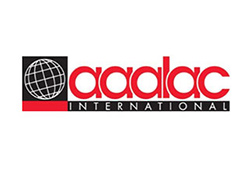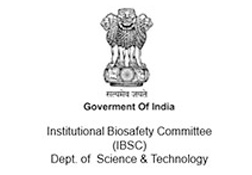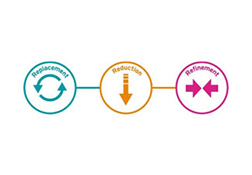Ensuring Precision and Safety in Medical Device Implantation Testing: A Guide to ISO 17025 Compliance
Introduction :
Compliance with ISO 17025 ensures that the laboratory meets international standards for testing competence. Regular training, staying informed about advancements in implantation testing, and participating in relevant proficiency testing programs contribute to the ongoing improvement of laboratory practices. Laboratories should also stay updated on any revisions or updates to relevant standards in the field of biocompatibility and implantation testing.
ISO/IEC 17025 is a standard that specifies the general requirements for the competence of testing and calibration laboratories. When it comes to implantation testing for medical devices, compliance with ISO 17025 is crucial to ensure the reliability and accuracy of the testing results. Here are general considerations and steps for implantation testing in accordance with ISO 17025:

1. Scope of Accreditation:
Clearly define the scope of implantation testing services offered by the laboratory. Specify the types of medical devices and materials covered, as well as the relevant testing methods.
2. Personnel Competence:
Ensure that laboratory personnel involved in implantation testing have the necessary qualifications, training, and experience. This may include expertise in relevant fields such as biomaterials, biocompatibility, and implantation testing techniques.
3. Test Methods and Procedures:
Document and follow established test methods and procedures for implantation testing. These methods should align with relevant international standards, such as ISO 10993-6 for biological evaluation of medical devices – Part 6: Tests for local effects after implantation.
4. Quality Control and Quality Assurance:
Implement quality control measures to ensure the reliability and reproducibility of implantation test results. This may include running control samples, validating methods, and participating in proficiency testing programs.
5. Equipment and Calibration:
Calibrate and maintain all equipment used for implantation testing according to applicable standards. Regularly monitor and document the calibration status of equipment to ensure accuracy.
6. Sample Handling and Storage:
Establish procedures for proper handling, transportation, and storage of samples to prevent contamination or degradation. Ensure that samples are stored under conditions that maintain their integrity.
7. Record Keeping:
Maintain detailed records of all implantation testing activities. Documentation should include sample identification, test conditions, results, and any deviations from standard procedures.
8. Reporting of Results:
Provide accurate and clear reports of implantation test results to clients. Reports should include relevant details about the testing process, conditions, and results, along with any observations or deviations.
9. Traceability of Measurements:
Ensure traceability of measurements to national or international standards. Document the calibration status of measurement equipment and reference materials used in implantation testing.
Conclusion
Compliance with ISO/IEC 17025 is not merely about meeting a set of requirements; it represents a laboratory’s commitment to excellence, reliability, and safety in implantation testing for medical devices. By rigorously following the guidelines outlined in ISO 17025, laboratories can achieve and maintain the highest standards of testing competence. This not only facilitates the development of medical devices that are safe and effective for patient use but also fosters trust among manufacturers, regulatory bodies, and the public. As medical technology advances, laboratories must continue to evolve, adapt, and improve, ensuring that their practices align with the latest standards and innovations in the field. Through meticulous attention to detail, ongoing professional development, and a steadfast dedication to quality, laboratories play a pivotal role in advancing healthcare and enhancing patient outcomes.




